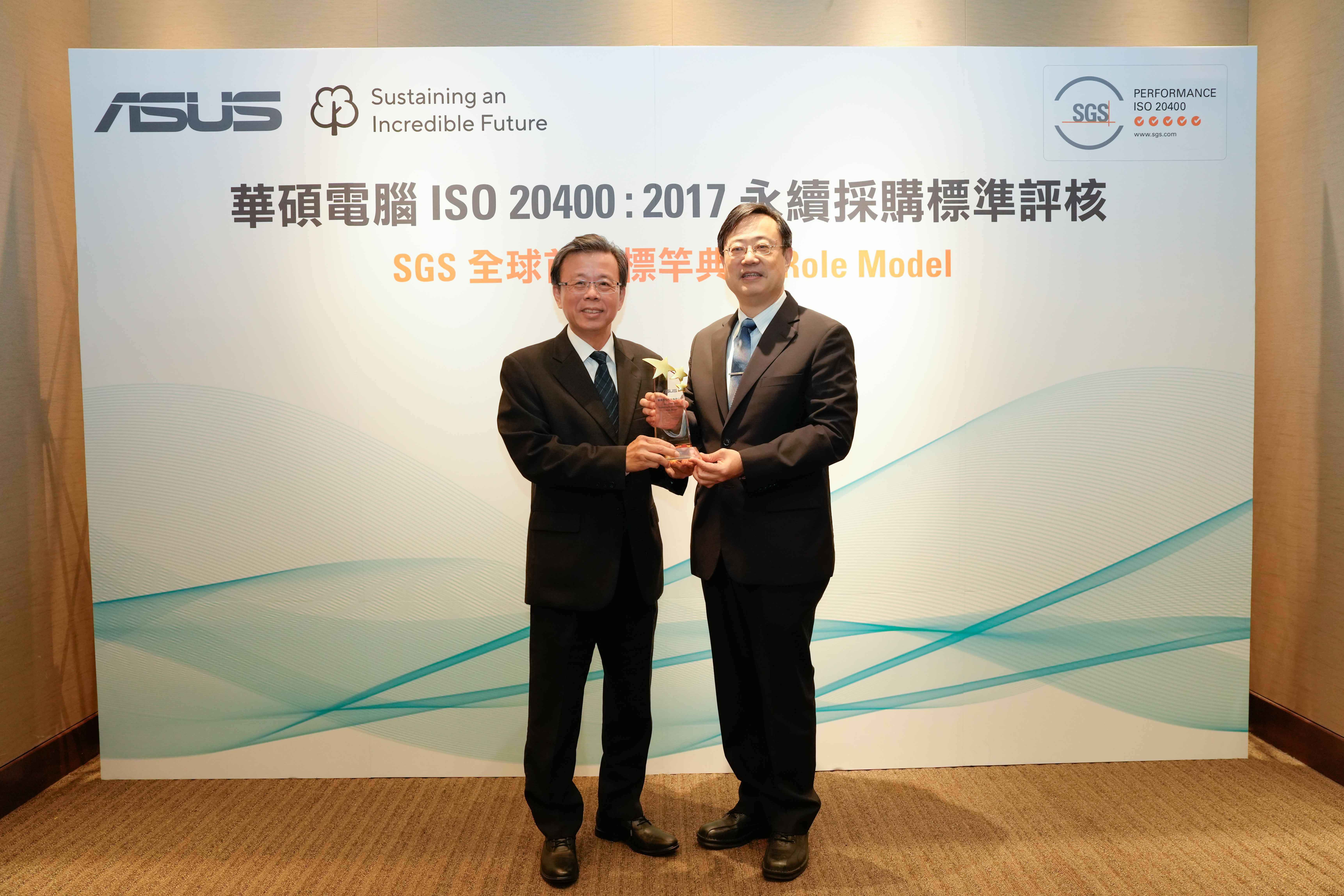Feature Story
2025/04/30
ASUS Advances Sustainable Procurement Initiatives through ISO 20400 for Sustainable Value Chain Management
-
Copied to clipboard
In today’s global business landscape, sustainable procurement has become a pivotal strategy for ensuring long-term corporate growth. It extends traditional procurement considerations—such as technology, service, price, quality, and delivery—to include social, environmental, and economic factors. The International Organization for Standardization (ISO) introduced ISO 20400, the international standard for sustainable procurement, offering practical guidelines for stakeholders across internal and external procurement processes. By adopting sustainable procurement practices, companies can mitigate environmental impacts, safeguard human rights and labor practices, promote fair operations, strengthen supplier relationship management, enhance procurement performance, and build sustainable competitive advantages.
Upholding the core principle of " digitized data and scientific management," ASUS is committed to pragmatic and sustainable management practices. The company has long invested in responsible manufacturing, actively engaging with international organizations and adopting recognized management systems. Since 2018, ASUS has been a Full Member of the Responsible Business Alliance (RBA), demonstrating its strong commitment to supply chain responsibility and assuming greater producer accountability. ASUS has also achieved 100% use of responsible minerals and became the first technology company globally to publish an Environmental Profit and Loss (EP&L) report, quantifying the environmental impact of its suppliers.
In 2019, ASUS initiated its sustainable procurement actions by implementing a systematic framework and was awarded the world's first ISO 20400 Sustainable Procurement Certificate by SGS, achieving the "Advanced" level of recognition. This accomplishment reflects ASUS’s longstanding dedication to sustainable procurement and lays a solid foundation for continuous enhancement. In 2025, ASUS once again set a global benchmark by attaining the "Role Model" level—the highest five-star rating, marking a new milestone in sustainability and demonstrating industry-leading achievements in sustainable value chain management.
ASUS was awarded the highest rating in the ISO 20400 by five key areas of sustainable management:
- Sustainable Governance:ASUS established sustainable procurement policies and guidelines, set mid- and long-term targets to measure performance, and strengthened cross-functional collaboration through the ESG Committee and the Business Continuity Management Committee. Also, it promoted employee sustainability training program. From top-level support to departmental implementation, ASUS continuously drives sustainable procurement with a comprehensive governance framework.
- Climate Action: ASUS set concrete carbon reduction strategies and targets. It not only obtained Science Based Targets initiative (SBTi) validation, but also used scenario analysis tools to assess the financial impacts of climate change, integrating renewable energy into its operational strategy. Furthermore, ASUS launched the world’s first commercial laptop with both carbon footprint and carbon neutrality verification (ExpertBook B9). In 2024, ASUS became one of the first companies to achieve the EPEAT Climate+ Champion, realizing low-carbon operations and supply chain transformation to minimize environmental impacts across the value chain.
- Responsible Manufacturing: As a Full Member of the RBA, ASUS conducted supplier audits based on high-risk indicators and incorporates sustainability into quarterly business reviews, ensuring environmental standards and human rights protections within the supply chain. The company also enhanced information security management to strengthen overall supply chain resilience.
- Digital Transformation: ASUS developed a carbon data management platform to build a trusted mechanism for carbon data, enabling robust management and insight into upstream and downstream supply chain carbon emissions, thus advancing the sustainability and digital transformation.
- Unified expansion: ASUS expanded sustainable management practices to the group level, aligning with the scope of consolidated financial reporting. Initiatives included group-wide carbon management, RBA audits, and sustainability reporting.
Looking ahead, ASUS will continue to pursue its vision of becoming a "world-class green high-tech leader" by deepening the implementation of ISO 20400 sustainable procurement practices. Through highly integrated cross-functional collaboration, partnerships with suppliers, and a dual transformation driven by digital platform management, ASUS will leverage technology to strengthen the sustainability and resilience of its supply chain.

Related Article
